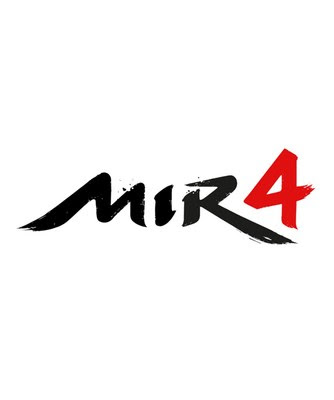The state-of-the-art infrastructure of Dubai Electricity and Water Authority (DEWA), adopting innovation and the latest tools for anticipating the future, as well as sound scientific planning have helped it keep pace with the growing demand for water in Dubai according to the highest standards of availability, reliability, and efficiency. DEWA’s total production capacity has reached 490 Million Imperial Gallons per Day (MIGD) of desalinated water including 63 MIGD using Reverse Osmosis (RO). The full length of water transmission and distribution lines has reached 13,592 kilometres across Dubai by the end of 2021. This helps DEWA maintain its services for more than three and half million people who live in Dubai and millions of visitors. DEWA’s results surpass many European and American companies in several indicators. In 2021, the water network losses reached 5.3% compared to around 15% in North America, which is one of the lowest percentages worldwide. This enhances DEWA’s position as one of the most prominent global utilities and the most distinguished in all its operations.
DEWA works to consolidate the competitiveness of the Emirate of Dubai and its global position. It also strives to ensure water security in the UAE, as part of its commitment to this national priority which forms one of the seven strategic sectors of the National Innovation Strategy. This is in accordance with its efforts to support Goal 6 of the UN Sustainable Development Goals 2030, which ensures clean water and sanitation for all.
HE Suhail Al Mazrouei, Minister of Energy and Infrastructure in the UAE, said that the government of the UAE firmly believes that water security is a prerequisite for sustainable development efforts. Therefore, the UAE launched its Water Security Strategy 2036, which aims to ensure the sustainability and continuity of access to water during natural and extreme emergency conditions, while giving the sixth goal of the sustainable development goals related to water a top priority. The scarcity of water resources is one of the biggest challenges facing our Arab region. In pursuit of the UAE to meet the challenges related to water, the competent authorities in the country have implemented many major projects and used modern technology in water management, in addition to launching initiatives aimed at rationalizing water uses and developing water resources.
“Recently, we launched four pioneering national initiatives concerned with the sustainability of water resources in the country. These include Digital System for Water Management in Infrastructure Assets, Integrated Management of Dams and Water Facilities, the Hydrogeological Map project and Water Future Hackathon in Infrastructure Assets. The initiatives come within the framework of the Ministry’s strenuous efforts to support the objectives of the Emirates Water Security Strategy 2036 centered on ensuring sustainability and continuity of access to water, reducing the total demand for water resources by 21%, reducing the water scarcity index by 3 degrees, and increasing the rate of reuse of treated water. to 95%,” added Al Mazrouei.
“Our ambition is great, and our successes are continuous. We will not stop at the achievements, but we will continue to work with stakeholders and our strategic partners locally, regionally and internationally during the next fifty years, to achieve more success that will certainly lead us to global leadership; that water security is an essential pillar of sustainability, and stands at the forefront of the UAE’s strategic priorities,” concluded Al Mazrouei.
“We work to achieve the Demand Side Management Strategy to reduce consumption of electricity and water by 30% by 2030, and Dubai’s comprehensive approach to ensure the sustainability of water resources in line with the Dubai Integrated Water Resource Management Strategy 2030, which focuses on enhancing water resources, rationalising water consumption, and using cutting-edge technologies and innovative solutions. This is in accordance with the directives of His Highness Sheikh Mohamed bin Zayed Al Nahyan, President of the UAE; and His Highness Sheikh Mohammed bin Rashid Al Maktoum, Vice President and Prime Minister of the UAE and Ruler of Dubai,” said HE Saeed Mohammed Al Tayer, MD & CEO of DEWA.
“DEWA has an integrated strategy to ensure the security and sustainability of energy and water. This strategy is based on three pillars. The first is providing 100% of the energy production capacity in Dubai from clean energy sources by 2050. The second is to decouple the desalination process from electricity production and desalinate water using solar energy. DEWA aims to produce 100% desalinated water by 2030 using a combination of clean energy sources and waste heat. The third is disrupting the role of utilities by digitization through Digital DEWA, our digital arm, to make DEWA the first digital utility in the world using autonomous systems for renewable energy and storage while expanding the use of AI and digital services. We continue developing proactive solutions for challenges of the next 50 years to make the UAE the world’s leading nation by its Centennial in 2071. This is by using our advanced smart grid and the latest Fourth Industrial Revolution technologies as well as effective governance practices to raise efficiency and reduce consumption. We also achieve this through developing unique experiences that make Dubai a global model for clean energy, water, and green economy,” added Al Tayer.
RO and the IWP model
DEWA is implementing a 40 MIGD Seawater Reverse Osmosis (SWRO) desalination plant at Jebel Ali Power Plant and Desalination Complex at a cost of AED 897 million. The SWRO plant is equipped with recovery devices with a 96% efficiency rate. DEWA is also implementing the 120 MIGD Hassyan SWRO Plant Project using the Independent Water Producer (IWP) model. The project is DEWA’s first Independent Water Producer (IWP) model project.
DEWA is also working on the Aquifer Storage and Recovery (ASR) project for desalinated water. It uses clean solar power to desalinate seawater using the latest Reverse Osmosis (RO) technologies. Excess water is stored in aquifers and pumped back into the water network when needed. The cost of this innovative integrated model is less than the cost of traditional reservoirs, and is a sustainable, eco-friendly, economical solution. It also underlines Dubai’s ability to anticipate and shape the future. The full scale of the ASR project can store up to 6,000 million imperial gallons of water once completed by 2025 as a strategic reserve. This makes it the largest ASR of its kind in the world to store potable water and retrieve it in case of an emergency. This will secure the Emirate with an additional source of potable water strategic reserve of 50MIGD for 90 days in emergencies, while ensuring the quality of the stored water. It supports DEWA’s efforts to increase the storage capacity of Dubai to reach 7212MIG in 2025 compared to the present storage capacity of 822MIG.
Water Reserves
DEWA is currently building a reinforced concrete 60-million-gallon reservoir in Lusaily alongside the existing one, which stores 120 million gallons of desalinated water. DEWA is building another 120 MIG reservoir in Nakhali to increase the water flow and raise the volume of the Emirate’s water reserve. This meets the growing demand, supports the sustainable development of Dubai, and increases the efficiency and reliability of water networks, as well as increases the water storage capacity in Dubai.
Strategic Water Connection
DEWA is cooperating with Abu Dhabi Transmission and Despatch Company (TRANSCO), a subsidiary of Abu Dhabi National Energy Company (TAQA Group), to make three interconnections that can transfer a total of 117 MIGD to different areas in Abu Dhabi and Dubai, supporting reliable water supply to customers across the nation. DEWA and Etihad Electricity and Water Authority (Etihad WE) have completed the strategic interconnection project in Masfout, which allows the exchange of up to two million gallons of potable water. The strategic water interconnection projects will help avoid crises and any water shortage. They will also help raise the efficiency and operational capacity of water networks to promote sustainable development in the UAE and achieve the UAE Water Security Strategy 2036, to ensure sustainable access to water during both normal and emergency conditions.
Reducing Network Losses
In 2014, DEWA launched the first phase of the Supervisory Control and Data Acquisition (SCADA) centre for water transmission at DEWA’s Sustainable Building in Al Quoz. This is part of its efforts to achieve digital transformation using state-of-the-art operational technology. This enables it to monitor the water network in Dubai remotely around the clock, including the water transmission pipelines, pumping stations and reservoirs sprawling over 2,300 kilometres. This has been done by installing over 8,500 smart devices. DEWA is currently implementing the second phase of the system to include the water distribution pipelines and regularly expanding the transmission network.
DEWA also developed its Hydronet project to use AI and Deep Learning. Hydronet has saved AED 5.3 million annually by remotely monitoring and controlling the water network in Dubai. The project can be integrated with any SCADA system and provides real-time insights into the current state of the network. It can also fix leaks in seconds without human intervention. This increases the efficiency of the water network and the pipeline isolation in Dubai, saving time and effort. The project has won the silver Team Idea of the Year award at Ideas America 2020. DEWA adopts the smart ball leak detection to detect invisible water leakages in water transmission pipelines that are hard to detect or reach. DEWA has also launched its Water Smart Distribution Management System to increase the visibility and management of its water distribution network. It also improves the automation, efficiency of operations, reliability of water supplies. It has a centralised around the clock system for remote control and monitoring, as well as innovative smart equipment and systems. The system also uses Remote Terminal Units (RTUs) installed at interconnections between the transmission and distribution pipelines. In addition, it is linked with advanced water SCADA and hydraulic-management systems. The system will improve fault location and isolation, and lower costs.
Smart Grid
DEWA’s Smart Grid programme, with investments of around AED 7 billion, provides advanced features that include interoperability across the entire electricity and water network. It is an integral part of DEWA’s strategy to develop state-of-the-art infrastructure for managing facilities and services according to smart and integrated systems using disruptive technologies and Fourth Industrial Revolution applications. DEWA’s Smart Grid Strategy 2021 – 2035 includes six main themes: Foundational Capabilities; Grid Automation; Smart Energy Solutions and Green Mobility; Smart Water; Smart Grid Artificial Intelligence; and Innovative Value-Added Services. As part of achieving the short-term goals of its Smart Grid Strategy 2014-2035, DEWA replaced all its mechanical water meters with smart ones between. Between 2015 and 2020, DEWA replaced all electricity and water meters with smart meters, a deployment of over two million smart meters. By automating meter readings, DEWA empowers its customers with information on their usage patterns; allowing them to effectively manage their electricity and water usage. It also started operating the Smart Meters Analysis and Diagnosis Centre, where 879,000 smart meters are read and monitored remotely every 15 minutes. This helps DEWA improve the meter readings availability to 99.9%. Remote control of smart meters also identified and handled 457,233 water leakage reports, 16,103 defects, and 7,974 cases of increased load over the past three years. The number of water accounts reached 960,032 accounts by the end of 2021 compared to 666,006 accounts by the end of 2016; an increase of 44%. The total number of electricity and water accounts reached 2,021,508 accounts by the end of 2021.
Source: Dubai Electricity and Water Authority


